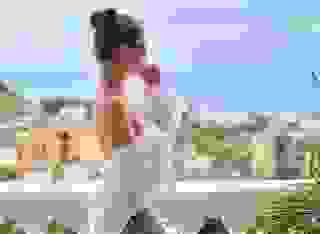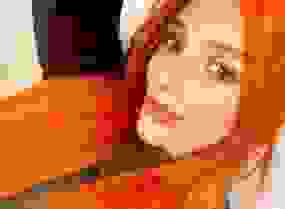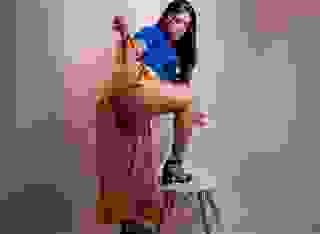Note: You can change font size, font face, and turn on dark mode by clicking the "A" icon tab in the Story Info Box.
You can temporarily switch back to a Classic Literotica® experience during our ongoing public Beta testing. Please consider leaving feedback on issues you experience or suggest improvements.
Click here"Let me go, Peter!" she shrilled. "Let me go!"
Genuinely frightened, I tried to bring her to my arms for a hug, but she broke free with surprising strength and ran weeping from the room, leaving me dumbfounded in the middle of the kitchen. I heard the door to her bedroom slam.
I couldn't understand why she would have such a strong reaction to an innocent question, but I guess subconsciously, I knew something was up. I made my way to the bedroom, as quickly as I could.
Knocking lightly on the locked door, I asked, "Mom can you open the door? We need to talk. Please open the door." There was no response. I thought I heard quiet sobbing.
More concerned than ever, I knocked again, more sharply this time. "Mom, please open up. Why are you upset? Just open the door and talk to me," I pleaded.
I thought I heard her crying increase. My wind was up now, big time. I rattled the door knob and shouted, "Open it Mom - please talk to me, please!"
No response. I was now starting to get angry, as well as terribly worried.
Eventually, I heard her sobbing stop, but she never responded to my entreaties. Heaving a painful sigh, I went back to the living room and stared morosely at the fire, a large knot in my stomach.
I simply couldn't understand how everything had come apart in the space of a few minutes, but I had an increasingly dark suspicion about what Sean had told me about Art Swenson.
I knew what had happened in the past was never going to be a barrier between me and Mom, but clearly she didn't know it. I was determined to make it apparent to her, in the clearest possible terms, that it didn't matter one whit to me.
Marching upstairs with grim purpose, I knocked on her door again. "Mom!" I called out. "We need to talk. Right now, please! Please open the door. There's nothing to hide or be ashamed of, okay? Please, open the door!"
Silence.
Then I felt it - a cold draft blowing under her door, chilling my bare feet. Now I was truly alarmed.
"Mom, if you don't open this door, I'm going to break it down. This is crazy!" I shouted, more in fear than anger.
Silence.
I took a step back and lowered my shoulder, rushing forward. My first impact bulged the door, but it held. The second rush produced the desired effect, the jamb splintering as I tumbled into the room.
Mom was gone and the window by her vanity open, snow swirling in and landing in a fine white dusting on her dresser, the curtains billowing.
My heart went into free fall.
Just at that moment, I heard the pickup start with a roar. I ran to the front of the house and dashed out the front door, heedless of the snow on my bare feet, but she was already gone. I felt like throwing up.
By now, I was nearly frantic. The only thing I could think to do was to get hold of Hilda. I went back into the house, bundling up for the five minute walk to Hilda's cabin.
When I arrived, I was essentially incoherent with anxiety. I took five minutes and three fingers of brandy to bring me to my senses. When I finally got the whole story out, including my suspicions and fears, Hilda shook her head throughout the narrative, sighing heavily at its conclusion.
"Jesus, Peter, I hardly know what to say," she spoke softly. "This is so far out of left field, I haven't the faintest idea about what's going on." She refused to look at me.
"But you're her closest friend!" I exclaimed, almost indignantly.
At this point I badly needed some reassurance, some insight into why my world had just blown up in my face. I guess I was counting on Hilda to provide me some kind of an anchor, something that would allow me to make sense of what had happened and how to fix it.
Clearly though, that wasn't going to happen. I was on my own. In desperation, I asked, "How much do you know about this Art Swenson? I need some answers, Hilda. I know you're holding something back, now out with it!"
She shook her head, still not meeting my eyes.
I lost it.
"Damn it, Hilda!" I shouted. "I need answers, you hear me, answers! I know something's going on here and I know you're not telling me everything you know. I swear to God, if you don't help me here and if anything happens to Mom..." I let my voice fade off into threatening silence.
Hilda looked at me incredulously. In all my years of knowing her, I had never raised my voice to her, so I'm sure she was shocked. She held up her hands placatingly.
"I'm sorry Peter. I promised Chris. I promised on our friendship and everything we hold dear that I would keep her secret. Gunnar thought I knew something about it and he threatened me, but I told him no."
"Of course I told him no on my front porch, with a shotgun pointed at him," she smiled thinly, "But I said no, and I meant it."
I half smiled, the mental picture in my head, but after that brief moment, my fear rose up to clutch at me once again.
Drawing a deep breath, I asked one more time. "Hilda, we both agree that Mom's reaction was totally out of character. Do you think for one minute I care the least bit about her past? If you any guesses about what she might be doing now, I need to know. Right this minute. I don't think she's in her right mind."
Taking in a deep breath, Hilda looked at me steadily. "I have a few ideas about where she might be right now. Let's go check them out. If we don't find her, I...I guess I'll have to tell you what I know."
We bundled up and headed out into the swirling snow. We drove relentlessly for hours, visiting every possible place we could think of.
We drove up and down nearly every road we could find and as time passed, I became more and more worried. By the time darkness was falling, I was verging on the edge of a full blown panic attack.
We had just wandered more or less aimlessly onto a spur road by the Bridge Creek Reservoir, driving through drifted snow amongst the scattered conifers, when Hilda clutched my arm.
"Look Peter! Over there!"
At first, I didn't see it. Then my eyes adjusted to the fading light and I saw the left rear fender and tail light of the pickup, mostly buried in snow and canted at a sharp angle. It looked as though Mom had driven it into a ditch covered by a large snowdrift.
I leaped from the car, half running, slipping and sliding to Mom's truck. I basically dove into the snowdrift, burrowing frantically to uncover the driver's side door, heedless of the numbing cold on my bare hands.
After an agonizing five minutes, I uncovered enough of the door to be able to open it. The window was frosted from the inside with crystallized breath and I couldn't see a thing in the darkened interior.
I opened the door and found Mom slumped over the steering wheel, a bruise on her forehead.
She was still, so very still.
I felt the beginnings of incredible pain deep within me, an awful sense of utter and total loss, an emptiness so encompassing that I knew I would never be whole or complete again.
Chapter 17
Just as an anguished scream was about to rip from my throat, I saw the faintest flicker of motion along the appalling, blanched white curve of her neck near the collarbone. I looked again, hardly daring to hope, and it was there again.
A pulse. Thank God, a pulse.
"She's alive!" I yelled to Hilda. "Help me get her out!"
We pulled Mom from behind the steering wheel and each took an arm, dragging her unresponsive weight to Hilda's Xterra. Folding down the rear seats frantically, we got her into the back and Hilda took charge.
"Take her jacket off, Peter. Yours too. I've got a blanket . Hold her close and I'll wrap you both up. Hold her tight, Peter. For the love of God, hold her tight."
We got bundled up and Hilda threw the SUV into reverse and slewed us into a perfectly executed bootlegger turn and shot down the road. Under other circumstances, I would have been impressed, but all I could notice was how cold Mom felt against me and how shallow and sporadic her breathing was.
Dialing the car heater to full blast, Hilda spoke quickly and firmly, her eyes glued to the road as we rocketed back towards town.
"I don't know if we have time to get her to the hospital, Peter. I don't think we can waste even one minute. We're going back to your house. It's at least ten minutes closer than the ER."
"Do it," I replied tersely. I concentrated on holding Mom close, rubbing my hands over her back to generate friction.
A few minutes (or was it years?) later, we rocketed into the driveway, snow and mud flying as the Xterra bottomed briefly out at the curb. We slid to a stop directly in front of the porch and Hilda was out in a flash, throwing the doormat to one side to get the hidden key.
I scooped Mom up and rushed up the stairs to our room, Hilda following close behind.
"Get your clothes off and get under the covers," Hilda commanded.
I stripped us down without ceremony and hauled Mom's limp form under the covers. Hilda found a second and then a third comforter, piling them on us.
Then she walked quickly from the room, calling over her shoulder, "Going to need warm blankets. I'll keep cycling them. Thank God the wood stove is still hot."
For the next hour, Hilda shuttled in and out of the bedroom with blankets heated by the wood stove, some literally singed and smoking from being thrown over it. I didn't care that the house reeked of scorched wool. I didn't care that Mom and I smelled like smoked kippers.
The only thing I cared about was that Mom's pulse seemed to be getting stronger and her breathing more regular. Her cheeks, which looked at first like the whitest porcelain and equally lifeless, now had gained some color. I was starting to finally emerge from full on panic mode, the sweat pouring off my body against the still-distressing coolness of Mom's torso.
I didn't even want to think about her hands and feet. I had no idea how long she had been in the snowdrift, but I was terrified about the possibility of frostbite. I wanted to start warming her arms and legs, but Hilda, old Alaska hand that she was, set me straight.
"No, Peter," she'd said firmly. "Not until she wakes up. Heat the limbs too soon and she'll go into shock, maybe even fibrillation. Be patient. Please be patient."
Eventually, I don't know how long later, Mom stirred against me and burrowed her head in my shoulder. At that moment, I wanted to shout with joy. I wanted to cry with relief and collapse in a gibbering heap. Instead, I called to Hilda and she started wrapping warm towels around Mom's arms and legs. When I saw all her fingers and toes pinking up, I finally relaxed, tremors not from cold, but in tremendous release of tension.
As she began to come around, the shivering began. In spite of hot blankets, my body heat and three comforters, she shook. She shook hard enough to rattle the bedframe, but it was all good. She was coming back.
I held on for dear life.
After a good half hour, her eyelids fluttered for the first time and she moaned, arms reflexively tightening around my shoulders. Then they opened. At first, she didn't seem to be able to focus and she stared at me uncomprehendingly. Abruptly, she teared up and the waterworks began in earnest. She trembled and sobbed in my arms for fifteen minutes, not saying a word.
Gradually, the tears and cries transitioned to sniffles and hiccups and she stared at my chest, darting glances at my face out of the corners of her eyes.
Taking her chin gently, I tilted her head so she had to look at me directly.
"I'm glad you're all right," I said softly. "You had me very worried for a while. Please, don't do that again. I know you've been living alone with awful secrets for a long time, but you shouldn't have overreacted. You should have had more faith in me, how I feel about you, about us," I chastised gently.
That started her tears afresh and I had to hold her tightly all over again until she calmed down.
Taking a deep, shuddering breath, she said, "I'm a horrible person Peter. I've kept the truth from you for so long, so many things you should have been told, that you deserved to know, but I was afraid. Selfish and afraid, taking what I wanted without opening my heart to you, like you deserved. I don't see how you can possibly love me."
"Mom, I don't care if you're a serial killing, pet torturing, child abuser. It doesn't matter. I. Love. You," I stated emphatically. There's nothing you could tell me that's going to change how I feel. It's as simple as that."
"You have no idea," she objected. "None at all. So many secrets, so many things to hide..."
Taking her hands in mine, I replied gently, "So tell me, Mom. I'm here to listen. And I'm not going to judge you, not now, not ever. Just talk, okay?"
Hilda materialized at the bedside then, a mug of hot tea in her hands.
"Drink this, Chris, drink up honey. You still need to warm up. I'll be downstairs if you need me."
Nodding her thanks, Mom took a sip and clutched the cup in both hands, close to her chest. For a long time, she stared into space, avoiding looking at me. Letting out a resigned sigh, she finally turned to look me in the eyes. Her voice was low and hesitant.
"Peter, I'm going to tell you everything I know. How I came to be married to your father and the story of our family as well. I guess I always knew that some day there would be an accounting, but I had hoped that it wouldn't be so soon...because, because...because when I tell you everything, you're probably going to be disgusted and we'll be done, done for good."
"Not going to happen, pen jente, just not going to happen," I replied firmly. "If you think that I didn't figure out a long time ago that our family was...different, then you're nuts. I've known since I was little that there are secrets and I also figured out that there was some sort of lurking ugliness that you were shielding me from."
"It was perfectly right to hide that from me when I was six, but still, I knew that something was up with you and father. But that was then. I'm grown now and I can handle whatever you care to tell me. Remember this though, Mom - that was then. Now is only about us and our future. Everything else is background noise."
Nodding skeptically, Mom began without preamble.
"Everything begins with your great grandfather on Gunnar's side. That family has been rotten to the core for generations. You great grandfather was a Nazi sympathizer who made a fortune while collaborating with the Germans. His sons, including bestefar Lars, well they were even worse. Your great grandfather was a greedy, amoral man, but his sons, they were truly evil."
"Lars and Olaf weren't content with helping their father run his 'business,'" Mom said darkly. "They joined an anti-resistance Waffen SS regiment for fun. For fun and excitement. It seems they couldn't pass up the opportunity to rape and murder with impunity."
"In any event, your great grandfather committed suicide rather than face trial at the end of the war, but his sons carried on, oh yes they did."
"Although great grandfather didn't survive, his empire did. It not only survived, but grew like a cancer when Lars and his brothers took the helm, coming out of hiding after deserting their SS regiment when the writing was on the wall. Where your great grandfather used Wehrmacht troops to impose his will and extract his tributes, his sons just used local thugs and escaped common criminals as their enforcers."
"That was all fine and dandy for a year or two, while the government got itself reorganized and reestablished its authority. Lars and Olaf were ruthlessly clever and managed to stay under the radar, taking advantage of all the postwar chaos as best they could."
"Eventually though, their little mafia came under scrutiny and it was established that both Lars and Olaf were enthusiastic participants in the anti-partisan sections of the Waffen SS. Most of their "work" was done in and around Oslo, so nobody local made the connection at first."
"Somehow though, they were tipped off that the net was closing in around them and they disappeared. I don't know how they ended up in Homer, but they picked it for some reason, likely its isolation."
"And bestemor Ulla?" I asked.
"I don't know, Peter," Mom answered softly. "I know very little about her. I think she was a cabaret singer in Oslo and Lars brought her back to Trondheim after the war. Beyond that...I have no idea."
"I think Grandfather Lars killed her," I said softly, putting voice to my suspicions for the first time. "I think father knew this or maybe even saw it when he was young."
"It would explain a lot," Mom agreed. "I've long suspected that there's an unmarked grave somewhere..."
"This all makes some sort of sad, twisted sense, Mom, but it's only half the story," I interrupted. "I've never understood how it happened that you married a man like Gunnar."
Mom nodded and closed her eyes, a long, drawn out sigh escaping her lips. She was silent for a long time, clearly gathering her thoughts and memories together.
"I grew up in a small Sami village outside of Trondheim. I'm not even sure that it exists any more. It was near another small place called Vikhammer, right on the shores of Trondheimsfjord. My people were poor, very poor. "
"At the end of the Second World War, many Sami lost everything as the Germans withdrew, looting and burning as they went. In those days, we were very much second class citizens, so reparations and rebuilding were very slow to find us, if at all."
"My maternal grandfather had stayed true to many of the old ways and was an unusually talented hunter and fisherman. There wasn't much money, but he, his wife and children survived. My father wasn't so lucky. He was orphaned in 1944 and nearly starved to death. Relatives eventually found him and he was raised communally by a group of various aunts and uncles"
"In any event, Grandfather passed much of his skills on to my mother and father and they carried on with fishing and trapping. In those days, as Norway and Europe became more prosperous, a demand for luxury trade developed and my mother and father used their skills to become fur providers of note."
"They became particularly adept at catching Lynx and the income from this helped them get by, but they had to spend much time in the mountains tending their traps."
"When I was six, they were killed in an avalanche. We couldn't recover their bodies for 4 months, until the snows melted." A tear trickled down her cheek as she remembered.
"I was sent to live with my relatives. I split time between an aunt and uncle and grandfather. He was already seventy-two and was no longer as active as he once was. He supported himself with odd jobs and a miniscule pension he got for his military service. I loved him dearly. I was also very close to my cousins."
"As I got older, in my early teens, I helped him when I could, but his health was failing. He was working as a janitor at a wharfside warehouse in Trondheim and was finding it harder and harder to do the work, so after school I would help him."
"One day when I was seventeen, I was seen by your great-uncle Olaf. He had snuck back into the country on a false passport to check on the family's criminal enterprises in the docks. He was very taken with me and made my grandfather very afraid. Grandfather sent me back to my aunt and uncle's place near Ostersund, hoping that Olaf would forget about me, but that wasn't to be."
"I guess he told Lars about me when he got back to Homer. Somehow, they decided that I should be brought to Alaska as a wife for Gunnar, who was in his mid-twenties at the time. I came to understand that this was how those "Heimdahls" did everything. If they saw something they wanted, they took it. Straight theft was preferable, especially if they thought no one would see what they were up to, but a young woman was a different matter," she stated matter-of-factly.








